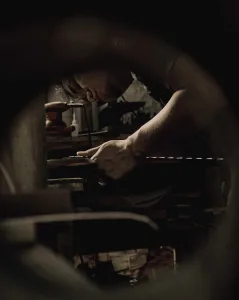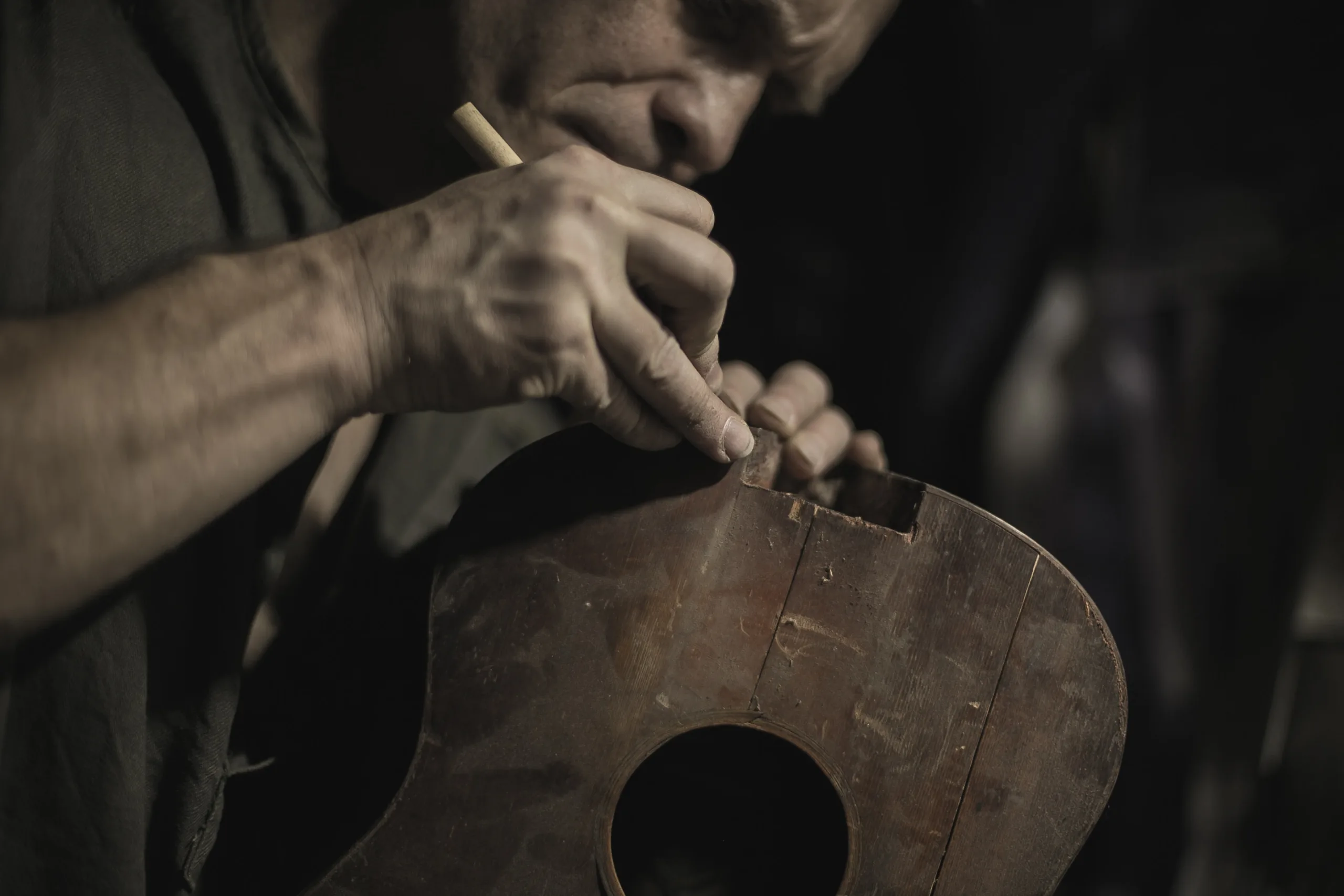The world of music comes alive with the melodious tunes produced by various instruments that touch our souls, provoke emotions, and create lasting memories. Just as the proficient musicians who play these instruments, the unsung heroes behind the continuous musical harmony are those who repair and restore musical instruments. These skilled individuals ensure that each strand, key, and valve is in its best shape to take us on their captivating musical journey. In this blog, we will delve into the life and expertise of a person who repairs musical instruments, a Luthier or Instrument Repair Technician.
What is the Role of a Musical Instrument Repair Technician?

- A Musical Instrument Repair Technician is responsible for servicing and repairing a wide variety of musical instruments as well as related equipment.
- They must understand the technical and mechanical aspects of string, wind, electronic, and percussion instruments.
- They must be knowledgeable in identifying issues, diagnosing them, and providing solutions for repairs or replacements.
- Responsible for preventive maintenance and service on customer instruments to ensure optimal performance.
- Setting up, adjusting, cleaning, and maintaining instruments to comply with the manufacturer’s specifications.
- Working closely with customers and creating cost estimates for repairs.
- Maintaining detailed logs of all repairs from diagnosis to completion.
The Skillset of a Luthier
A Luthier is a craftsperson who specializes in constructing and repairing stringed instruments such as guitars, violins, cellos, banjos, and mandolins.
Woodworking
Woodworking is one of the basic skill sets that a Luthier must possess. Not only does it involve creating instruments from raw materials, but it also requires knowledge of joinery techniques such as dovetail joints and butt jointing. Luthiers must also be able to finish the instrument with their desired style and look, whether it’s a polished finish or an aged look. With these abilities, Luthiers can create precise and beautiful instruments for any musician.
Knowledgeable in Acoustics
In addition to woodworking skills, a Luthier must thoroughly understand acoustics. Acoustics are the physics of sound, and by understanding its principles, a Luthier can design instruments that produce the desired tone. With advanced knowledge in woodworking and acoustics combined, Luthiers can make extraordinary musical instruments for any player.
Understanding of Musical Instruments
A Luthier must also thoroughly understand the various musical instruments they are creating. It includes an in-depth knowledge of their anatomy and function, as well as the differences between different types of construction. Additionally, they must be familiar with working with various materials such as wood, metals, and plastics to achieve the desired sound. With this expertise, Luthiers can craft custom instruments with stunning playability and tone.
Craftsmanship
Luthiers must also possess a keen eye for craftsmanship, which includes paying attention to the fine details when constructing and repairing instruments. It often requires precise measurements and setting up the instrument with exact specifications to ensure that it produces the desired sound. Craftsmanship is essential in producing quality instruments; without it, even the best-designed instruments can fall short of their potential.
Troubleshooting
In addition to the art of crafting and designing instruments, Luthiers must be well-versed in troubleshooting and maintenance. It requires them to understand the various components within an instrument and be able to diagnose any potential issues or defects that can arise. Identifying different problems is key to ensuring that repairs are made accurately and efficiently. As such, a Luthier must possess the technical skills needed for effective repairs and creative problem-solving abilities.

The Education and Training Path
While no standard education route exists for aspiring Instrument Repair Technicians, various courses, programs, and apprenticeships can provide a solid foundation in the craft. Various vocational schools and institutions offer specialized courses in instrument repair and restoration, focusing on diverse instruments like string, brass, or woodwind instruments. Apprenticeships under the guidance of an experienced mentor are invaluable, offering hands-on training and practical experience. Many reputable Luthiers share their knowledge through educational videos and online workshops.
Tips for Finding a Professional and Experienced Musical Instrument Repair Technician
Finding a skilled and experienced musical instrument repair technician is essential for protecting your beloved musical instrument and the quality of sound it produces. From guitars to clarinets, keeping instruments in their best condition requires expertise and intimate knowledge of all things musical. If you’re concerned about having your musical instrument repaired by someone who will do the job properly, there are several steps you can take to ensure that you select the right technician for your specific needs. To help make sure you find only well-trained and reliable professionals with years of experience working on instruments, we have compiled some helpful tips that will assist you in making educated decisions when it comes to repairing your instrument.
Do the research and read reviews on repair technicians in your area.
When looking for a technician to take care of repairs around your home, it’s important to do some research beforehand. Reading reviews from past customers is one great way to find out what others have thought about the service they received. Good reviews indicate that the technician is knowledgeable and capable, offering quality repairs and reliable service. Taking time to read reviews before signing a contract could help you save time and money in the long run, so do your homework before picking a repair technician in your area!
Ask for referrals from fellow musicians, music teachers, or shopkeepers.
Music tends to build a community among passionate people, so asking fellow musicians, music teachers, or even shopkeepers for referrals is an excellent way to broaden and personalize your network. There’s an endless exchange of ideas, opportunities, support, and even connections that can come from networking with others in the music industry. Before you know it, you could have new referral sources, gigs lined up, and collaborations planned! Asking for referrals from those with well-established relationships in the music industry will be key in helping you succeed as a musician.
Check the experience and qualifications of the technician.
When searching for a reliable repair shop, it’s important to consider the experience and qualifications of the technician working there. Not only should they be knowledgeable in providing professional assessments and repairs, but they should also have certifications with ample experience in the specialized care you need. Still not sure? Ask around town or read customer reviews online – these are great ways to verify the quality of service before making your final decision.
Find out if they specialize in certain types of instruments and styles of music.
It’s important to inquire if the store specializes in certain types of instruments and styles of music, as it’s more likely you can find the exact one you’re looking for there. Specialty stores may also offer additional assistance such as instrument tutorials, assistance tuning the instrument, repair, maintenance services, etc. Suppose you are just starting your musical journey or need advice on which instrument to buy. In that case, it’s a wise choice to first visit such specialty stores rather than purchasing from generic shops that may not have the expertise or resources to help you identify the right one for your needs.
Ask to see a portfolio or examples of their work.
Before you enlist the services of a professional, it is always a smart idea to ask to see their portfolio or examples of work they have completed in the past. It can quickly help you determine what quality level to expect and understand their style and approach. In addition, a portfolio or similar examples from their other projects will also assist you in deciding if it is the right fit for your needs. It is important to take the time to review this material before signing any contracts.
The person who repairs musical instruments, known as a Luthier or Instrument Repair Technician, is an essential part of the music community. Their unique blend of skills, knowledge, and passion enables them to breathe new life into damaged or worn-out instruments, ensuring their continued harmony and soul-touching melodies. The blend of art and technical expertise in their craft allows them to play a vital role in maintaining and enriching our musical world. If you have ever played or enjoyed music from a finely tuned instrument, take a moment to appreciate the dedicated and skilled hands of the Luthier behind its repair and preservation.


